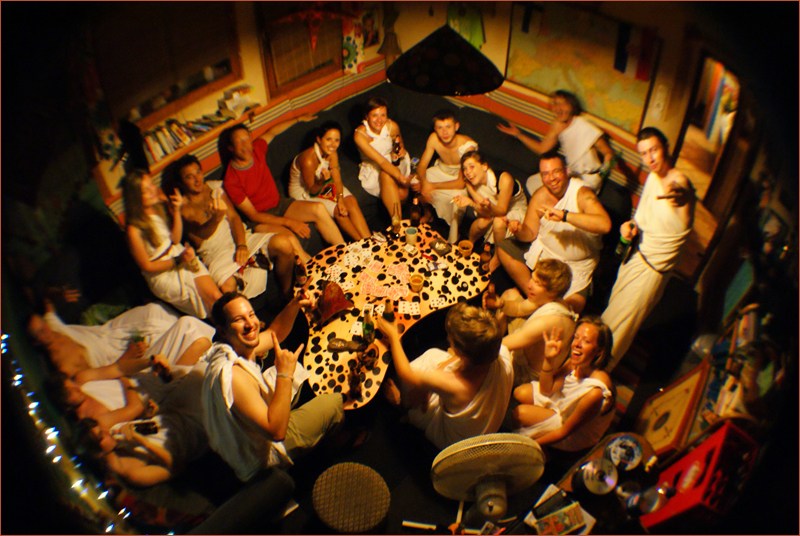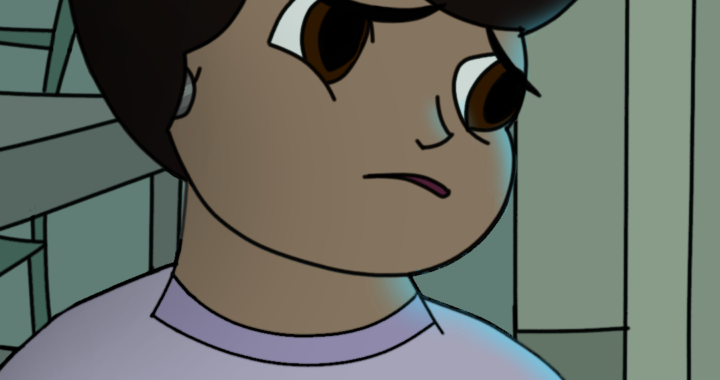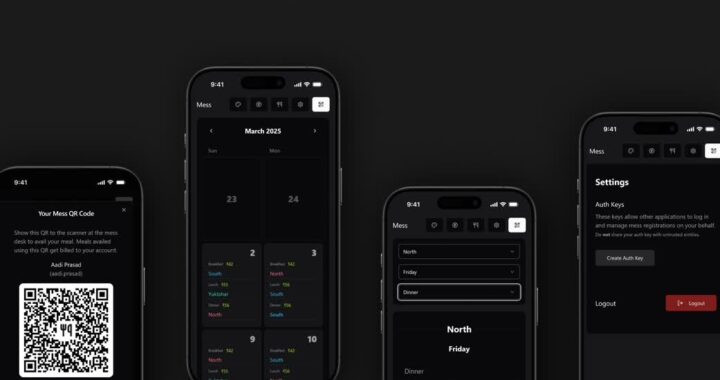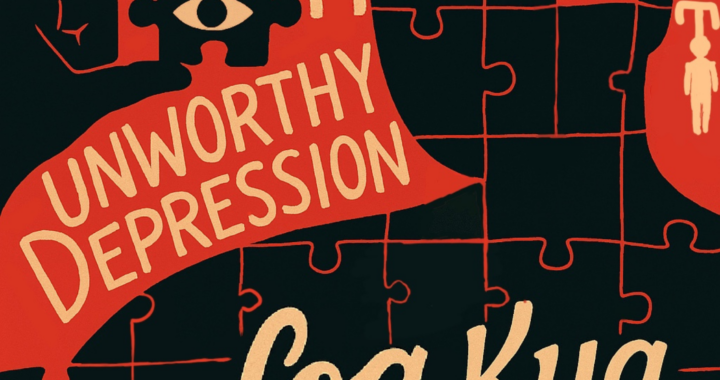A Case for Co-ed Hostels at IIITPart 2 of ‘Let’s Transcend Gender!’

SONY DSC
The OBH Bias
The suggestion that there is an “OBH bias” in IIIT was put forward in a Ping boardroom meeting nearly a year and a half ago, by a female student who had then been in the college for over 4 years, and while the bias has slightly fallen over the years, it still stands relevant today. The idea was that the bulk of the student community lives in OBH, a male-exclusive domain, and this closely knit male majority affects all student activities and decision-making on campus. But I’m getting ahead of myself.

The OBH bias itself is twofold; academic and campus life related.
Academic
We have team projects as early as the second semester. The girls are naturally excluded from these assignment and project teams by the boys, except of course, the occasional couple in a relationship.
I’m not blaming the boys here, the bias here is natural and predictable, enforced only by the structures in place. When most of the boys have the convenience to just go to each other’s hostel rooms and work together, while also being able to play some music and snack their way through their work, why indeed would they want to consider the other option. The gross inconvenience of working with a girl in such a set up is not as exaggerated as it may seem.
While the stuffy reading room and open labs are options, (inconvenient, but options nonetheless), they are only available till midnight. In the late hours, there is almost no way for them to work, and when deadlines approach, the teams NEED those late working hours! This then leads to rumours about persons sneaking into someone else’s lab, girls sneaking into OBH and what not, but can you really blame them?
A lack of convenient open spaces certainly hurts the female population of our college, and in turn the academic environment itself, where good collaboration may be limited due to gender. Of course, one suggested solution was to construct convenient open working spaces for students. However, there has been too much red tape involved in getting it done, and more importantly, working spaces could never offer the convenience of living spaces. Furthermore, the idea is not simply to provide a better space to work, but also a better space for group study, shared thinking, and in general, better exchange of ideas and opinions, not limited by gender. As the Dean(A) herself has said on record, “education in a residential campus happens continuously, whether it is in a classroom, lab, hostel, canteen or wherever.” [note] https://www.youtube.com/watch?v=87yil4uo1yc [/note] Clearly, introducing co-ed hostels is still the better solution.
Campus Life
As a senior student once explained, many decisions, especially related to Felicity, were made in a room in the OBH, where a group of drunk male students distributed responsibilities among themselves conveniently. Sometimes, there were pseudo-meetings where proxy discussions would happen, but then the final decisions would still be made in yet another OBH room, by yet another male group.
Female representation in club events has largely been negligible. In a recent play by Abhivyakti, only one out of the 8-10 actors was female. The TV Room Quiz Club is somehow a male-exclusive club. It may be no surprise that a club that has its origins in the TV room of, ahem, OBH, is male-exclusive, but the club has grown far beyond that, and to the credit of the present club, they are themselves making efforts to have more female participation. Yet, it may be difficult to move beyond what has been established from the OBH bias of the past.
Besides clubs, girls have forever been under-represented as well as misrepresented in the Parliament. Hostel is one of the major agenda points for the candidates, and the fact that girls can represent a mere 15-20% of this agenda automatically hurts their votes. This is still one of the minor factors. While campaigning for their candidature, male students to do so at OBH, hence covering a much larger target group than the female students can.
The only bunch of events that don’t seem to suffer from this bias are cultural events where the practices are usually conducted outside of hostels.
And this is not limited to injustice to the female population of IIIT; in excluding them from campus life, we’re also excluding a broad range of perspectives and opinions, and in turn causing injustice, period. A co-ed hostel environment could certainly bring justice to this scenario.
Gender Understanding, Relationships and Co-ed Hostels
Quite recently, there was a Facebook post by a male student of IIIT, regarding some PT credits rule that seemed, to him, biased towards the female population of college. The student met with a rather unanimous bashing and shaming from the female population of the college, over not understanding how menstruation affects their participation in PT. However, it was clearly not something so strikingly obvious to that particular student. The co-ed hostel environment would naturally lead to a better understanding of genders in general.
The institute itself has appointed a Gender Sensitization Committee and also organised gender diversity workshops to bridge this gap. However, the institute must also practice what it preaches. Gender-segregated hostels have no place in a world free of gender biases; and are in fact only a product of gender biases. As the institute moves towards a gender-sensitive environment, introduction of co-ed hostels should be an obvious step in the process. Otherwise, the many implicit claims over how these efforts of the institute are simply a PR exercise will only find more credit.
As elaborated in part 1, co-ed hostels are somehow synonymous with open sex for most people. However, as already explained in the Coupling Decoupling article of the November 2017 issue of Ping, yes, relationships and sex are a real thing in college. A lack of acceptance never made anything disappear, but only more contrived and odd, as was implicit in that article. Quoting from part 1 of this article, “staying in a co-ed hostel could get rid of all the stigma and mystery surrounding sex and can actually lead to better understanding of how it’s rather more about identity and choice”.

Steps at Hand and Final Words

A simple theoretical claim that co-ed hostels are going to be revolutionary is not enough. That just makes it a thing for the distant future; but this is not the case. I’m not saying that we can switch to co-ed hostels overnight; they should only be introduced phase-wise, but the first step leading to it may actually be taken up immediately. This first step should be to allow free entry for students of all genders to all the hostels. This itself will reduce much of the bias that we have discussed above. In fact, this simple thing has been in place at IIT Gandhinagar for years now.
Those who still think that co-ed hostels are a thing of the future, the future is now, and it’s time that they catch up. Switching to co-ed hostels is an intuitive decision, and work should start in this direction. The only obstacles are a lack of awareness and a lack of effort. With the former addressed, the latter would soon be overcome.

 Cleaning up the Mess?
Cleaning up the Mess?  The Mess-y Situation
The Mess-y Situation  Qu’ils mangent de la grenouille! (Let Them Eat Frogs!)
Qu’ils mangent de la grenouille! (Let Them Eat Frogs!)  Tale of Two Cheenties
Tale of Two Cheenties  Peace of mind.
Peace of mind.  Mama, Put My GPTs in the Ground
Mama, Put My GPTs in the Ground  Have you tried turning the mess off and on again?
Have you tried turning the mess off and on again?  Log Kya Kahenge?
Log Kya Kahenge?  Can you hear the music?
Can you hear the music?
2 thoughts on “A Case for Co-ed Hostels at IIITPart 2 of ‘Let’s Transcend Gender!’”
Comments are closed.